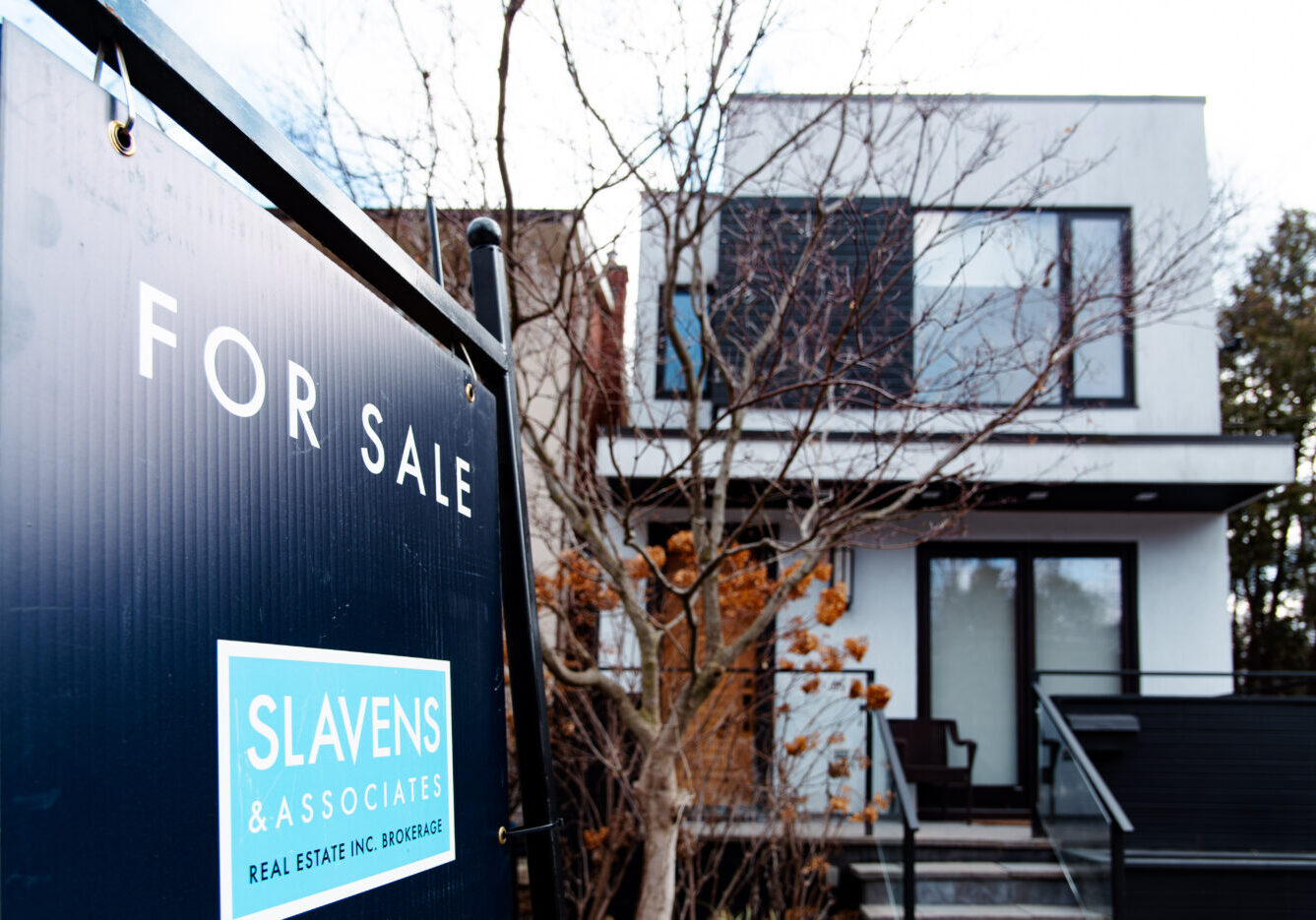THE GREEN LINE
ACTION JOURNEY STORY
Rentals forever? Young Torontonians lament the million-dollar homeownership hurdle.
This 27-year-old feels like his monthly rent goes into ‘a pit that doesn't generate anything’ — a vicious cycle that keeps young people from achieving their financial goals.

Erik C. rented a one-bedroom condo from his girlfriend's friend, and was forced to move when the couple faced a rent increase.


ALOYSIUS WONG
Toronto Metropolitan University Master of Journalism graduate. Lives in North York where he prays that the Eglinton Crosstown will eventually be completed.
March 11, 2024
This story is part of The Green Line's Action Journey on Toronto's housing crisis. Our seven-part story series examines the impossible climb towards home ownership, precarious rental situations and the pipeline from unaffordability to living on the streets.
Sign up for our storytelling event and Story Circle on March 19, 2024, where attendees will share their experiences with the city's housing market and brainstorm community-led solutions to navigate housing in Toronto. Dinner and refreshments will be provided.
Unlike most other Torontonians, Erik was surprised when his landlord raised the rent.
Erik C., 27, and his girlfriend had lived in a one-bedroom condo in the Beaches since February 2023. But later that year, their landlord — one of his girlfriend’s high school friends — told them she wanted to raise rent to a market rate of $2,500 per month when their year-long lease expired. Built in 2018, the condo building wasn’t wasn’t subject to provincial rent control, so the couple suddenly faced a rent increase of about $300.
“It felt greedy to me,” says Erik, who asked not to be identified by full name so as not to impact the friendship with his former landlord. “I felt like she was taking advantage of the fact that it was a new build, and she could raise it to something that felt exorbitant.”
But the landlord, he explains, saw it as “just business.” Regardless of who was living on her property, she wanted to make the most out of Toronto’s tight rental market.
While his girlfriend didn’t take it personally, Erik felt differently. To him, they were doing their landlord a favour by being good tenants and reliably paying rent. A large portion of the couple’s monthly income went towards rent, including paying out of pocket for some repairs, which he says supported their landlord’s lifestyle. “Taking even more money off the top for not providing anything seemed like it didn't make a lot of sense,” he explains.
Erik works as an operations coordinator for travel company Trufflepig, and his partner works for the Ontario government’s Ministry of Municipal Affairs and Housing. Together, they earn around $125,000 a year.
“Not the worst foundation,” Erik says. “But it’s still proving to be quite difficult.”
On top of this monthly rent increase, Erik is resuming his undergraduate commerce degree at York University this coming September, an additional cost to account for. The couple tried to negotiate a lower rate, but ultimately their landlord was only willing to give them a $50 discount. The rent increase would mean Erik would have to devote half or more of his monthly income to rent. He and his girlfriend are working towards some major milestones: Erik is finishing school, and the two are saving for their wedding. In a few years, they also want to buy a home and adopt a child. The couple felt that the higher rent would prevent them from achieving these life goals.
“It’s untenable,” Erik says. “And then you’re just stuck in a cycle of putting money into a pit that doesn't generate anything — money in somebody else's pocket.”
Ultimately, he and his girlfriend had no choice but to move out and find a cheaper place to live.

$1 million was enough to buy four homes in Toronto in the 1990s. Today, it's not enough to buy a semi-detached house in the city.

Priced Out
“If I had $1,000,000, I would buy you a house.”
Most houses in Toronto could be purchased with a cool million when the Barenaked Ladies wrote these opening lyrics to their hit 1992 song. But within one generation, this line reads like a time capsule from a long-forgotten, affordable era.
In fact, with $1 million, you were able to buy not just one — but four homes in Toronto throughout the 1990s. Today, that amount isn’t enough to purchase even a single semi-detached house in the city.
This stark reality is revealing a divide between generations. According to Statistics Canada, the homeownership rate among young adults from ages 25 to 29 dropped 7.6 percentage points from 44.1 per cent in 2011 to 36.5 per cent in 2021, while the homeownership rate among adults 40 or older remained relatively unchanged. And last November, in a study of 2021 census data, StatsCan found that the homeownership rate was as low as 2.1 per cent for Canadians born in 1999, now around 25 years old.
Inequalities in home ownership also persist across generations. The same November 2023 StatsCan study also found that among adults born in the 1990s, those with parents who owned two or more residences were about three times more likely to own a home than those whose parents owned none.
Ultimately, Erik says he and his partner were able to stay in Toronto, and secure a new rental through a family friend who provided them with a discount to match their new budget — $1,700, all-inclusive, for a two-bedroom basement apartment in the Beaches. But he and his girlfriend count themselves among the lucky few with personal connections who can provide access to reasonably priced housing in Toronto.
“For anyone who doesn't have a network in the city and who doesn't have a longstanding network of people who do own property,” he says. “I think it'd be really difficult to put yourself out there that way, and get a good footing on the market.”
Next in The Green Line Housing Crisis Action Journey Story Series: Silenced and scrambling: Toronto tenants navigate 'renovictions' and landlord fears in city's rental maze
Fact-Check Yourself
Sources and
further reading
Don't take our word for it —
check our sources for yourself.
